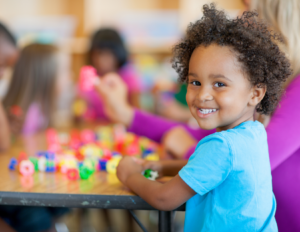Transitioning to School (KinderStart)

Supporting your child’s health and wellbeing: Transitioning to school (KinderStart)
KinderStart is a program to help young children get ready for kindergarten. It supports your child’s health and well-being before they start school.
As your child prepares for school, you might have questions about their health. Below, we’ve addressed some common concerns that families have.
The Role of the Public Health Nurse (click to expand) »Public health nurses help keep children healthy by:
|
Preventing Illness (click to expand) »The public health nurse at your school needs an up-to-date immunization record for your child. The nurse will check student records to ensure everyone is up to date with vaccinations.
|
Head Lice Management (click to expand) »Head lice can be annoying, but talking to a public health nurse can help. It’s important to remember that anyone can get lice, and it’s okay to ask for help.
|
Healthy Eating (click to expand) »Eating well helps children grow strong and healthy. Here are some tips:
|
Immunizations (click to expand) »
|
Allergies (click to expand) »Allergies are common among school-aged children. All families have a role to play in keeping children safe.
Learn about being allergy aware. |
Physical Activity (click to expand) »Children need to be active to grow and stay healthy. Movement is an important part of their development. Check out the Canadian guidelines for physical activity for young children: |
Personal Hygiene (click to expand) »Teaching your child good hygiene, like washing hands, is one of the best ways to prevent the spread of illness. Children usually bathe:
|
Sleep (click to expand) »Preschool and school-aged children need about 10-12 hours of sleep each night. A good night’s sleep helps them stay alert and ready to learn. For tips and resources, please visit:
|
Car Safety (click to expand) »Have your child’s car seat installed properly and your child is always buckled in, even for short trips. The back seat is the safest place for your child. For more information and resources, please visit Car seat safety. |
Head Injury Prevention (click to expand) »Head injuries can happen while biking but wearing a helmet can reduce the risk by 80%. Your child’s helmet should be the right fit and certified for safety. For more information and resources, please visit Helmets. |
Talking About Sexuality (click to expand) »As a parent, you are the first teacher about sexual health. Even with young children, it’s important to start healthy conversations. Learn more: Sexual health – young child (birth-5). |
School Readiness (click to expand) »Being ready for school isn’t just about knowing the alphabet. It’s about being healthy, working well with others, and having the basic skills to learn. Learn more: Is my child ready for school? |
Free Online Positive Parenting Program (click to expand) »Check out the free online program Parents Empowering Children, which supports parents of children ages 3-12. Learn more at Bridge the Gapp. |
Enjoy the Journey!
The path to school success starts early. With good health, strong relationships, and your support, your child will do great things. You are their most important guide.
Services related to this information:
- Contact your Public Health Nurse.
- 811 HealthLine (Newfoundland & Labrador) – Call 811 or 1-888-709-2929 / TTY 1-888-709-3555

